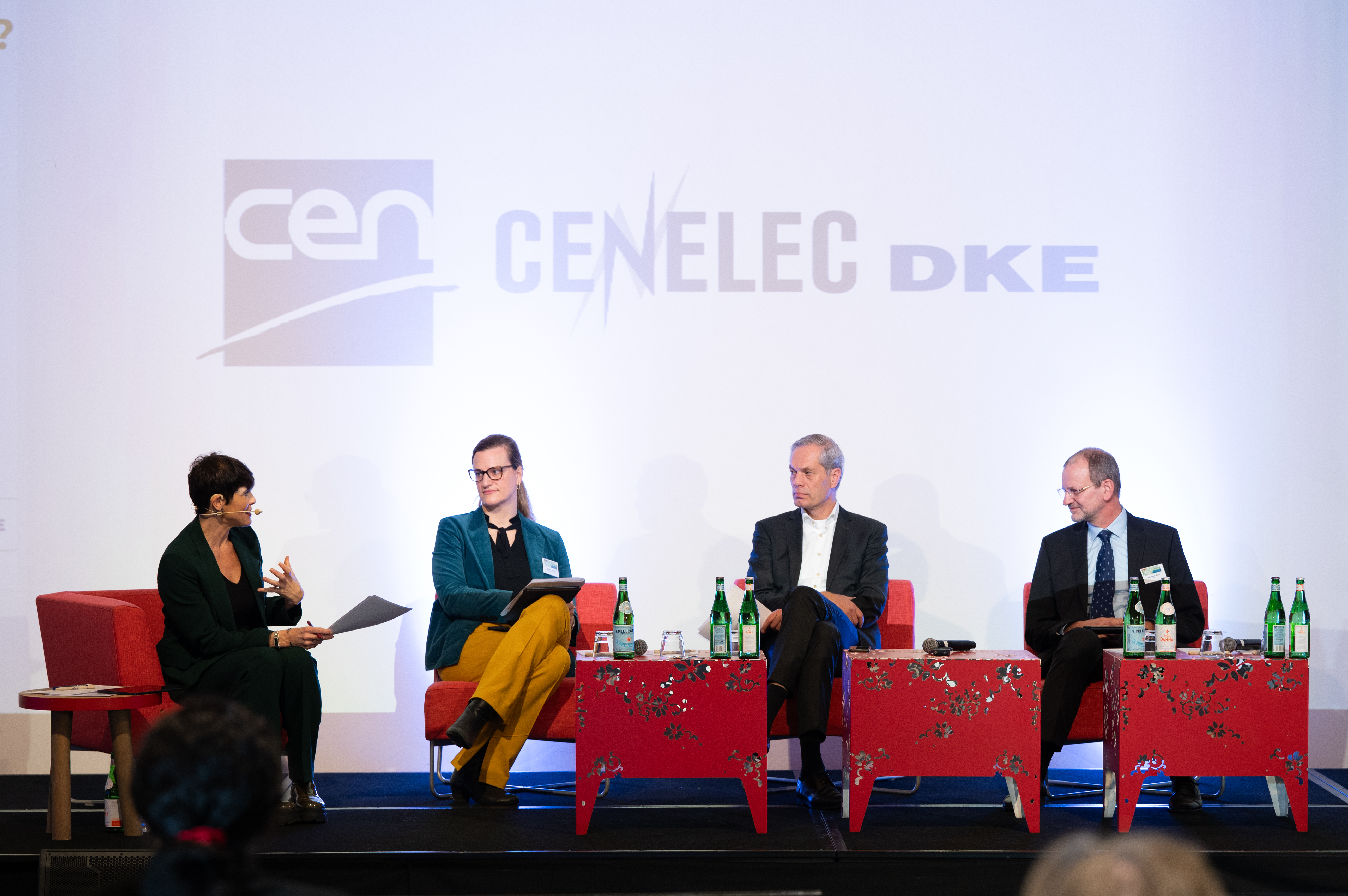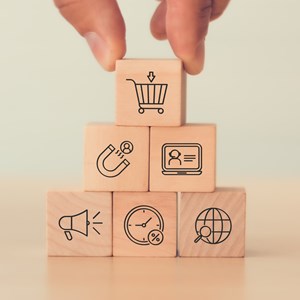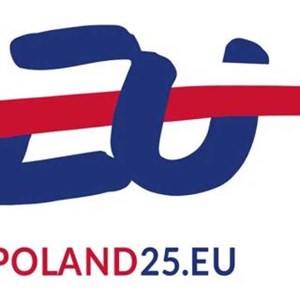Brussels, 13 December - How can Europe successfully generate and implement carbon-free electricity to support its climate neutrality and Green Deal plans? On 5 December, a stakeholders’ workshop organized by CEN, CENELEC, and DKE explored how standards can support the achievement of an All-Electric Society and the transition of Europe towards Net-Zero.
Electricity plays a key role to achieve climate neutrality and the Green Deal objectives. Today, with renewable and mainly electrical energy sources providing “green” electricity for mobility, infrastructure, energy storage, industry, and smart buildings, we are facing the largest electrification effort since the introduction of the electrical grid over 130 years ago. However, how can Europe ensure that it has what it takes to generate, store, and use 100% carbon-free electricity? And how can standards pave the way?
To explore the challenges and opportunities of Europe’s electrical transition, on 5 December 2023, CEN (the European Committee for Standardization) and CENELEC (the European Committee for Electrotechnical Standardization), together with DKE (the German Commission for Electrical, Electronic and Information Technologies), held the stakeholders workshop on ‘Road to Net Zero: Standards for the All-Electric Society’.
During the full-day event, which welcomed more than 200 attendees both in person and online, high-profile representatives from industry, European institutions, standardization organizations, and civil society gathered to discuss the status, and future potential, of the All-Electric Society.
Participants examined the need for technical concepts and interoperable solutions to meet the goals of decarbonization and greater energy independence; the role of standardization to contribute to a broader acceptance of the All-Electric Society; and how policy initiatives and new concepts such as the Digital Product Passport, the Data Spaces, Smart Contracts, and the Net-Zero Industry Act can interact with the vision of the All-Electric societies and its challenges.
Standards build trust in green energy infrastructure
The full-day event was opened by a welcoming speech from Wolfgang Niedziella, President of CENELEC. Mr Niedziella put current discussions in a long-term perspective of the role played by electricity in building the current world, and pointed out how the event would provide essential content on how to make the best standards for the All-Electric Society.
This was then followed by a keynote speech from Sophie Müller, Head of Unit Standards Policy, at the European Commission’s DG GROW, who elaborated on the political context of Russian war on Ukraine and European energy-supply crisis. She also highlighted the EU Grid Action Plan and elaborated on how standards facilitate investments and innovation.
Ms Müller's keynote speech was followed by a high-level roundtable discussion, in which she was joined by Peter Vermaat, Secretary General of EU DSO Entity, and Johannes Stein, Senior Principal Expert at DKE. The panellists touched on the transformative impact of the All-Electric Society in the wider transition towards a net-zero future and examined how standards can support its deployment.
In particular, Mr Stein said: “Technology is evolving rapidly, and standards have to evolve too. Standards will limit risks that arise with this evolution and help build trust for industry and investors.”
The two following panels were dedicated to highlighting the stakeholders’ perspectives. The first one focussed on consumers. Christiane Mann, Vice President, and Head of Industry Affairs at Siemens Smart Infrastructure; Chiara Giovannini, Deputy Director-General at ANEC; and Luise Christmann, Officer for Energy and Performance at Miele and Secretary of IEC/TC 59 ‘Performance of household and similar electrical appliances’ examined how standardization can cater to the different needs of consumers in their energy use.
The second panel was opened by a video message from Petter Isaksson, CEO of Ahlins I Habo AB, as SME representative, who underlined the need for energy-efficient production and holistic views to different energies carriers.
The ensuing discussion examined the perspective of industry stakeholders. It saw the participation of Yann Fromont, Deputy President of T&D Europe and Chair of the CEN and CENELEC Industry Advisory Forum; and Pascal Terrien, Chief Standardization Officer at Électricité de France (EDF), and Member of the Standardization Management Board (SMB) at IEC. The speakers discussed the impact of electrification on various sectors and business models, underlining how standardization can streamline sector coordination.
The All-Electric Society in practice
The afternoon session started with a deep-dive presentation by Frank Possel-Dölken, Chief Digital Officer at Phoenix Contact, who presented a real-life example of the All-Electric Society showing how a sustainable and fully electrified future could look like. He provided insights into the design of a new energy-positive production building using wind, solar, as well as new concepts like DC grids and ice storage to improve energy efficiency.
This presentation provided some food for thought for the following two ‘technology chats’, which focussed on emerging technologies. The first session, dedicated to sector coupling and energy management, saw the participation of Gabriel Bareux, Director of R&D and Innovation, Réseau de Transport d'Electricité France (RTE); Geert Deconinck, Professor and Head of the research group ELECTA (Electrical Energy Systems and Applications) at KU Leuven; and Luka De Bruyckere, Senior Programme Manager at ECOS. The panellists highlighted the need for innovative and cross-sectorial approaches to energy management and the necessity for interoperability in data communication between sectors, and deliberated whether the industry is prepared for current changes.
Moreover, the second ‘technology chat’ discussed data communication and the role of digitalization in fostering information exchange. For this debate, Frank Possel-Dölken was joined by Antonello Monti, Professor and Director at the Institute for Automation of Complex Power Systems of RWTH Aachen University and Svetoslav Mihaylov, Policy Officer, IoT Unit, at DG CONNECT, European Commission. The example of container shipping underlined the need for semantical interoperability for “data shipment” across companies, industries, and sectors. Speakers also described current projects and efforts for energy data spaces intended to support this interoperability.
Standardization needs collaboration
At the end of the event, Frederic Vaillant, CENELEC’s Vice-President Technical, analysed the main takeaways from the event and suggested a way forward for standardization.
He remarked: "Energy is life. It’s close to everybody’s needs. […] Everyone brings a piece of the puzzle. This will become more complex and need to be managed. Standards help simplifying this complexity.”
Finally, Elena Santiago Cid, CEN and CENELEC’s Director General, concluded by stressing the importance to involve as many stakeholders as possible in standardization to achieve the objectives connected to the All-Electric Society.
CEN, CENELEC and DKE are strongly committed to the twin transition and the move towards an All-Electric Society and climate neutrality in Europe. The workshop on Standards for the All-Electric Society was one of many initiatives bringing together stakeholders from various organizations in support of these goals.
The twin transition is a core driver of both the joint CEN and CENELEC Strategy 2030 and DKE Commitment 2030: the CEN and CENELEC community as a whole is driven to providing the technical solutions that can increase the uptake of clean technologies in Europe.
To know more about the event:

Giovanni COLLOT
gcollot@cencenelec.eu



